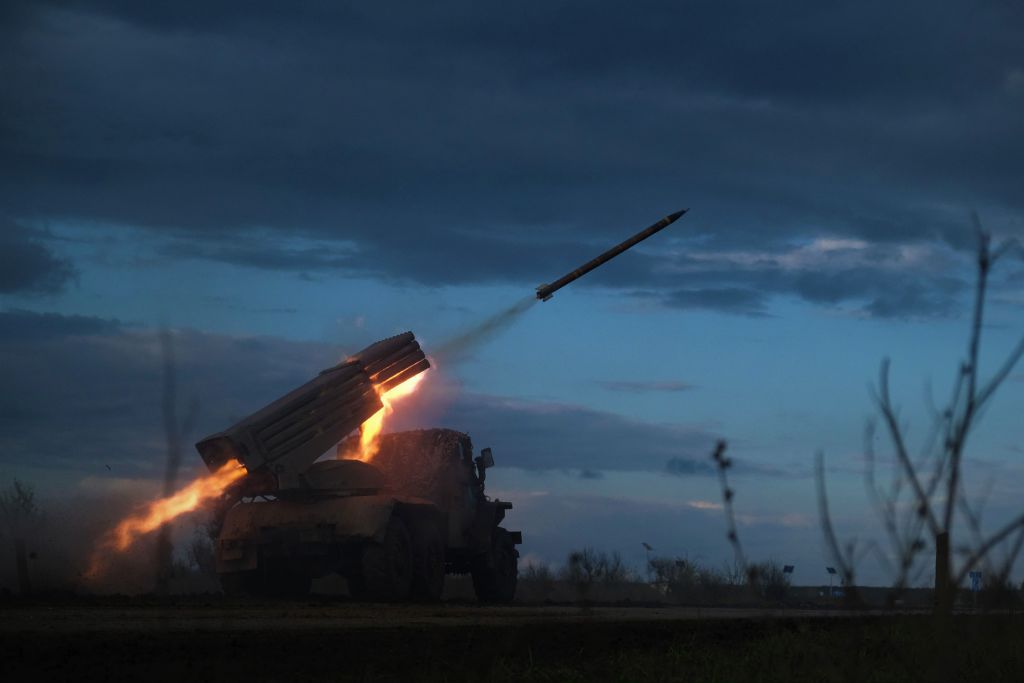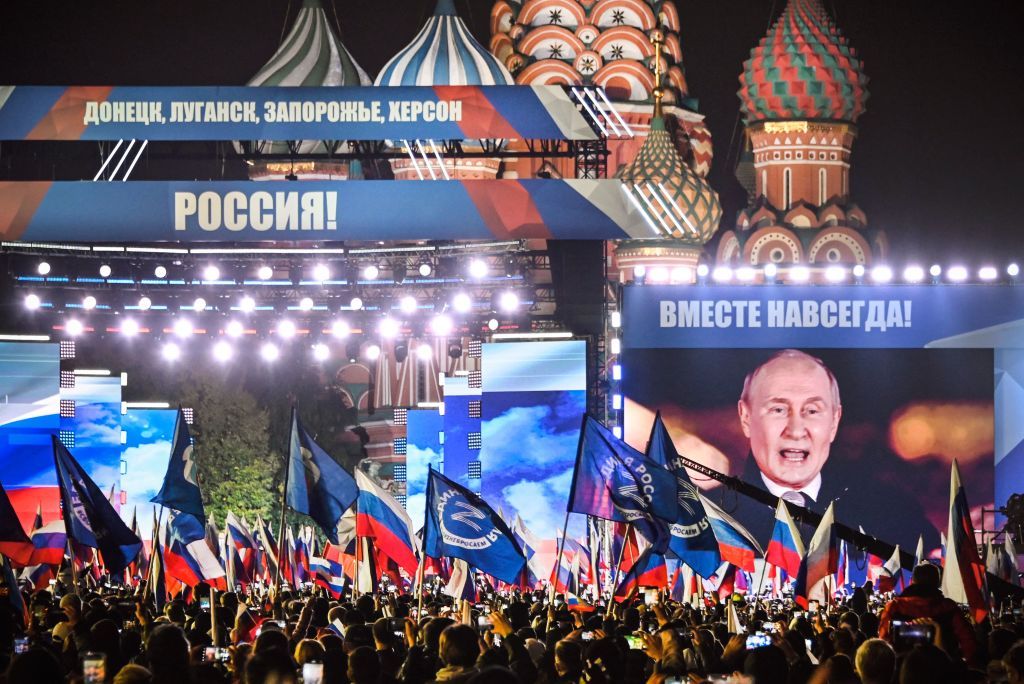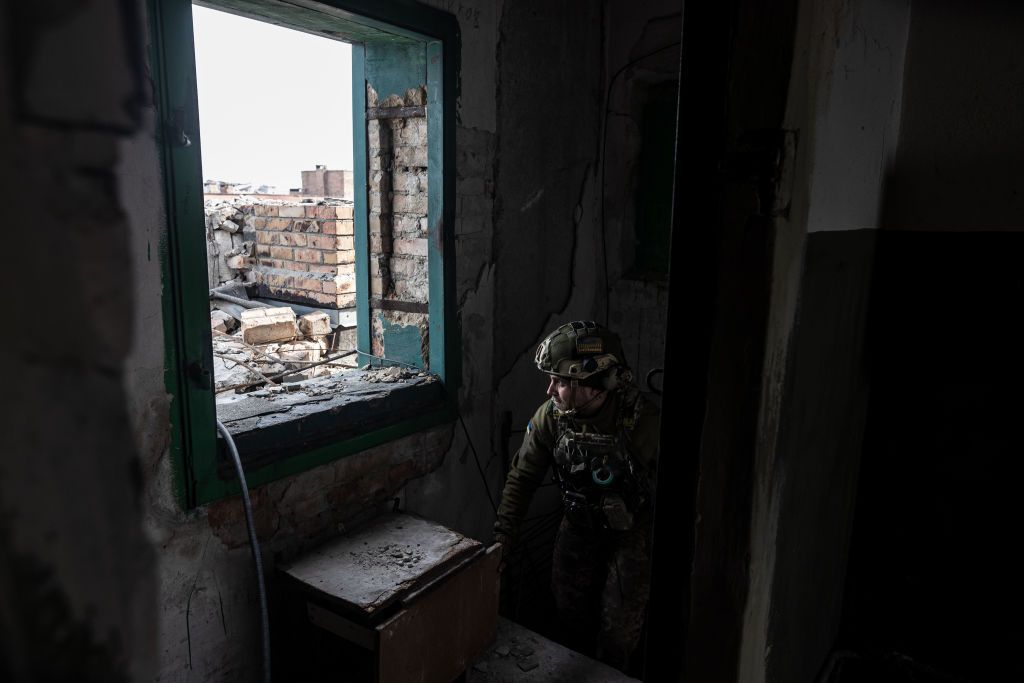
Key developments on April 23:
- Military asks for 'patience' on reports of possible Ukrainian advance in Kherson Oblast
- UK Defense Ministry: Russia ramps up army recruitment campaign by appealing to 'masculine pride'
- Military says Russia could try to storm Vuhledar in Donetsk Oblast
- General Staff reports shootout between Wagner and regular Russian soldiers in Luhansk Oblast
Ukraine may have gained new positions on the east bank of the Dnipro River in Kherson Oblast after months of neither side making noticeable progress in the country’s south.
A day after a Western think-tank’s report of a possible Ukrainian advance appeared, Ukraine's Southern Command spokesperson Natalia Humeniuk on April 23 asked for “patience.” She said she could neither confirm nor reject the report since "the conditions of a military operation require silence until it is safe enough for our military."
On April 22, the Institute for the Study of War (ISW), a U.S.-based think-tank analyzing the war in Ukraine, confirmed that Ukraine had taken new positions on the east bank, citing Russian military bloggers’ reports and footage.
The ISW said that Ukrainian forces had established positions north of Oleshky and west of Dachi, which are both settlements located within 10 kilometers from Kherson. It added that Russian forces might no longer control islands in the Kinka and Chaika Rivers just north of the geolocated Ukrainian positions close to the Antonivsky Bridge.
Russian military bloggers, according to the think-tank, have also admitted that Ukrainian forces have for weeks established positions and stable supply lines for them on the east bank, adding that it could indicate "a lack of Russian control over the area."
While the Ukrainian military is unlikely to disclose information until the situation of the mentioned areas in Kherson Oblast stabilizes, the ISW’s April 22 report hints at rare recent progress seen on the southern battlefield.
The front line in Kherson Oblast remained largely stalled since Ukraine liberated Kherson, the only regional capital that Russia captured since the beginning of the full-scale war, and areas on the west bank of the river. The retreating Russian troops fled to the east bank.

Russia intensifies army recruitment campaign
More than a year into the full-scale war, major Russian cities that once tried to keep the conflict a background noise are now actively trying to recruit more soldiers to fight in Ukraine.
Among the recruitment advertisements in Moscow, for example, is a poster that reads, “our profession is to protect the motherland.”
In an article published by a pro-Kremlin Russian media outlet, a Moscow shop owner says that a woman came with a poster recruiting for the army and reportedly said “there would be big questions” if he refused to display it.
A leaflet shown by Russian media promises up to 340,000 rubles (about $4,200) worth of monthly salary for fighting in Ukraine, as well as financial assistance for potential recruits' families.
While Russian soldiers and their relatives have often complained about not receiving their salary on time or in the amount promised, the latest recruitment move appears to be targeting families that are facing financial hardships due to Russia's shrinking economy.
The U.K. Defense Ministry said on April 23 that it’s part of Russia’s major campaign to recruit more soldiers by appealing to "potential recruits' masculine pride."
In its daily intelligence bulletin, the U.K. Defense Ministry said the "pervasive campaign" that relies on advertisements looking for "real men" is carried out across Russian social media, billboards, and on television. They also highlight the financial benefits of joining the army, it added.
The authorities are seeking to delay a new wave of mobilization of conscripts for the war against Ukraine for as long as possible to minimize domestic dissent, the ministry said.
The campaign comes more than half a year after the Kremlin announced what it claimed was a "partial mobilization" of 300,000 troops to fight in Ukraine. And with Russian President Vladimir Putin's decree on the mobilization still in force, Russia could launch a second wave of mobilization.
Back in fall 2022, Forbes Russia reported that more than 700,000 Russians had rushed out of the country shortly after Putin announced the mobilization.
 Kyiv IndependentKatie Marie Davies
Kyiv IndependentKatie Marie Davies
Donbas situation
Meanwhile, tough battles continued in the Donbas even as signs of progress for Ukrainian forces appeared in the southern Kherson Oblast.
Colonel Oleksii Dmytrashkovskyi, a spokesman for Ukrainian soldiers deployed in the southern Donetsk Oblast, said that Russian troops could start trying to storm the city of Vuhledar.
He reported that the Russian forces attacked Vuhledar six times over the past day using aircraft.
“The enemy is pursuing a scorched earth tactic,” Dmytrashkovskyi said on television.
Meanwhile, the General Staff of Ukraine’s Armed Forces on April 23 reported that tensions were rising between the regular Russian army and Russia’s Wagner mercenary group.
According to the General Staff, a fight that broke out between Russian soldiers and the Wagner mercenaries “recently” escalated into a shootout in the occupied town of Stanytsia Luhanska in Luhansk Oblast, with both sides suffering fatal casualties.
Neither the Russian Defense Ministry nor Wagner reacted to Ukraine’s claim of a fatal shootout in the occupied Luhansk Oblast.
 Kyiv IndependentFrancis Farrell
Kyiv IndependentFrancis Farrell
Comments
No comments yet. Be the first to react!